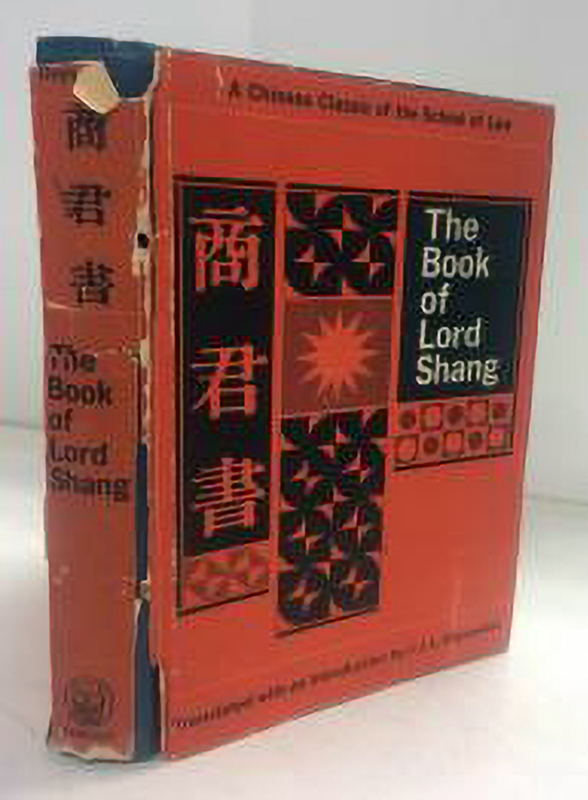The Book of Lord Shang: A Classic of the Chinese School of Law
Title
The Book of Lord Shang: A Classic of the Chinese School of Law
Description
The Book of Lord Shang (Chinese: 商君書; pinyin: Shāng jūn shū) is an ancient Chinese text from the 3rd century BC, regarded as a foundational work of "Chinese Legalism". The earliest surviving of such texts (the second being the Han Feizi),[1] it is named for and to some extent attributed to major Qin reformer Shang Yang, who served as minister to Duke Xiao of Qin (r. 361 – 338 BC) from 359 BC until his death in 338 BC and is generally considered to be the father of that state's "legalism".
The Book of Lord Shang includes a large number of ordinances, essays, and courtly petitions attributed to Shang Yang, as well as discourses delivered at the Qin court. The book focuses mainly on maintaining societal order through a system of impartial laws that strictly mete out rewards and punishments for citizens' actions. The first chapters advise promoting agriculture and suppressing other low-priority secondary activities, as well as encouraging martial virtues for use in creating and maintaining a state army for wars of conquest.
The Book of Lord Shang includes a large number of ordinances, essays, and courtly petitions attributed to Shang Yang, as well as discourses delivered at the Qin court. The book focuses mainly on maintaining societal order through a system of impartial laws that strictly mete out rewards and punishments for citizens' actions. The first chapters advise promoting agriculture and suppressing other low-priority secondary activities, as well as encouraging martial virtues for use in creating and maintaining a state army for wars of conquest.
Subject Matter
Chinese Philosophy
Publication Year
1928
Publisher
A. Probsthain
Language
English
Collection
Citation
“The Book of Lord Shang: A Classic of the Chinese School of Law,” The Bruce Lee Library Research Project, accessed January 26, 2026, https://www.bruceleelibrary.jamescbishop.com/lib/items/show/1573.

